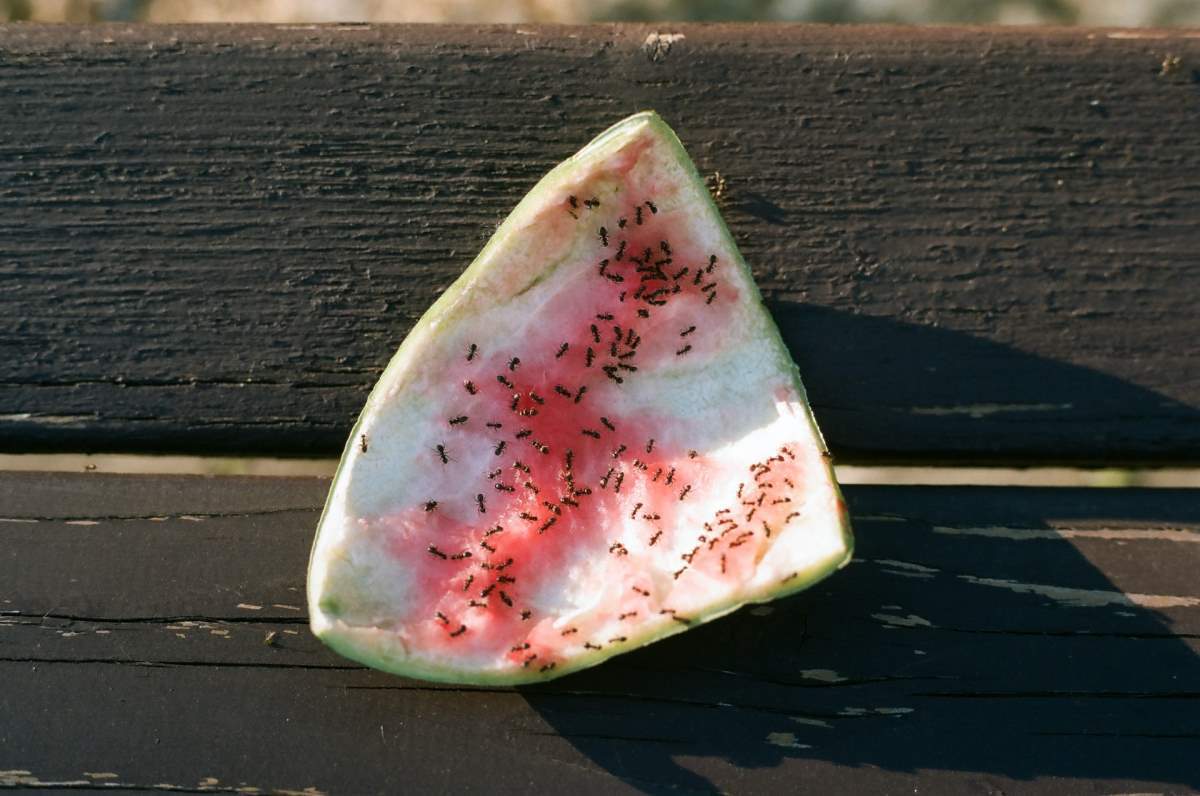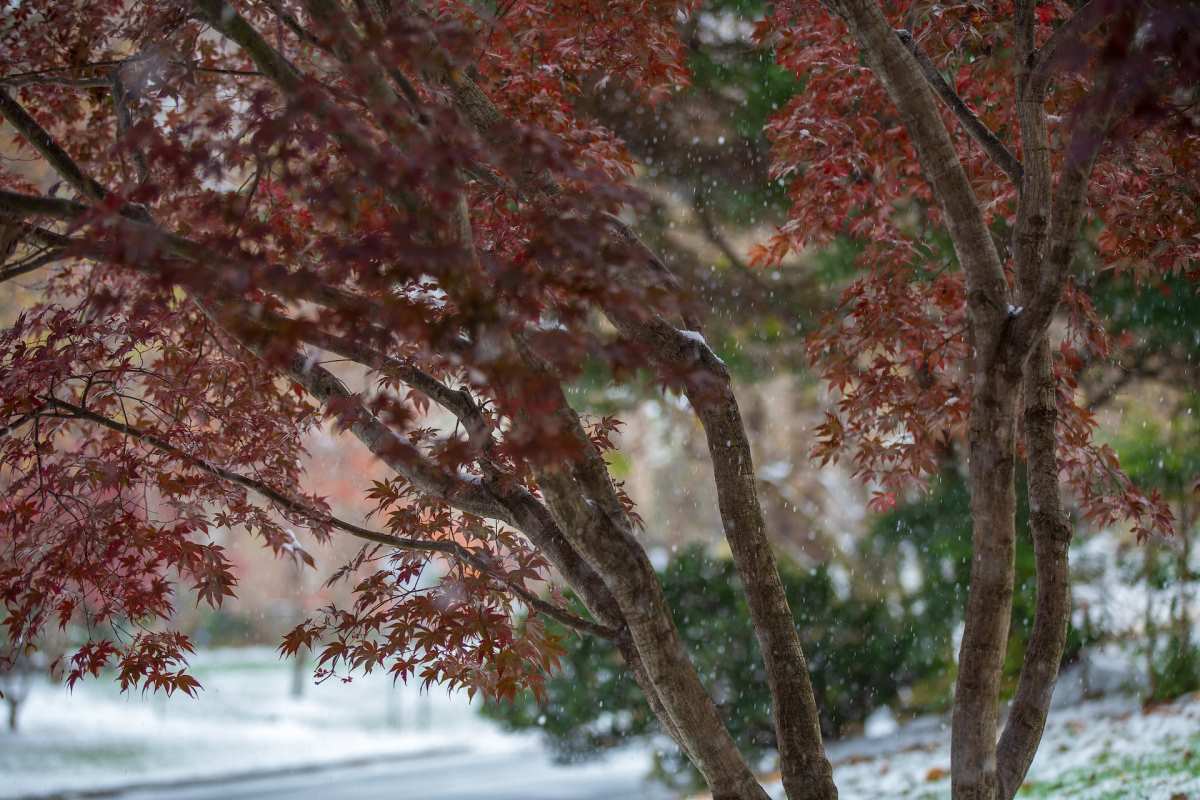Defend Your Home with Our Top 7 Winter Pest Control Tips
Reading time: 7 minutesMany people look forward to winter because they think pests like ticks and mosquitoes are gone for the season, but this isn’t exactly true. Winter is a prime time for insects, rodents, and other pests to seek food, warmth, and shelter from the harsh weather and cold temperatures outside. Your home is an ideal option if pests can get in.
Fortunately, there are many tips for winter pest control that you can use to help prevent pests from coming in and even discourage them from coming near your home. Here’s what to do and when you should contact a professional exterminator for help.
Top Winter Pest Control Tips
These are things you can do now to help reduce the pest population in and around your home.
1. Keep Your Firewood In A Good Place
If you use firewood to keep your home warm during the winter, it’s essential to ensure your wood stores are off the ground and away from your home. Think of a wood pile as a “luxury hotel” for pests – it provides them with warmth, shelter, food, and security throughout the winter.
If you don’t take steps to deter pests from this area, you could inadvertently bring them into your home whenever you add wood to your fire.
To make your wood stores as unappealing to pests as possible, you can:
- Keep your woodpile at least 18 inches off the ground.
- Don’t put them near your house.
- Avoid stacking wood up against a shed or garage wall.
- Cover your wood pile with a tarp.
2. Clean Up Food Messes
Food in your kitchen is one of the most attractive things for pests of all kinds, be it insects, rodents, or even raccoons. Ensure your counters are clear of food residue, crumbs, and liquid spills. Pantry items like cereal and pasta should be kept in closed containers, and leftovers should be placed in the refrigerator or freezer.

Developing a habit of cleaning up the kitchen at night before bed is also a good idea. Pests are less active during the daylight hours when people are up and around in the home and are more active at night. If there’s food left out in your kitchen overnight, pests will be immediately attracted.
3. Take Out The Trash
Like firewood, trash is a great place for pests to hang out in winter. The scent attracts insects like cockroaches and flies, while raccoons, stray cats, and other nuisance animals will also find their way to any trash they can access.
Make sure to take your trash out regularly – it’s better to have a little space in the bag when you take it out than to have old trash sitting in your home until you can top the bag off.
Trash should be removed from your home daily, especially before bed. This includes both kitchen and bathroom trash. Office trash and things like papers or boxes can wait longer if they’re not causing clutter pests find attractive.
Proper Trash Storage & Disposal
Make sure to close and secure indoor and outdoor trash cans when you’re not actively putting trash in the bin or cleaning it out. Otherwise, animals like raccoons or even bears could get into your bins. Not only will these unwanted and dangerous animals be near your home, but they’ll also leave big messes for you to clean up.
You should also inspect your trash can occasionally for signs of damage, ill-fitting seals, holes, and other openings that pests could infiltrate. Instead, avoid putting your cans against an outside wall of your home or near an exterior building. Compost, in particular, should be kept at least 12 inches off the ground and more than 100 feet away from your house.
4. Keep Your Home Free Of Clutter
In the winter, pests want to nest and even hibernate somewhere warm and cozy. Empty boxes and damp corners in your bathroom cabinets attract spiders, while old clothes attract moths. Look for areas in your home with clutter or unused items and throw them away, or ensure they have proper storage space.
Blankets, pillows, and other soft items should be kept in plastic storage containers with sealed lids, and if possible, use plastic containers for all your long-term storage needs. This is because cardboard is flimsy, disintegrates when it gets wet, and some insects can eat their way through the paper to your belongings inside.
5. Do Regular Yard & Garden Maintenance
You might think that yard and garden maintenance is strictly a summer chore, but this is a common misconception. Overgrown grass, weeds, twigs, and piled-up brush create a cozy home for bugs during the winter, so you want to maintain your yard even during the cold months.
While mowing may not be necessary during the winter, you’ll want to keep dead leaves and sticks raked up and trim evergreen foliage. The more debris pests and nuisance animals can hide in, the higher the chance they’ll find their way into your home when cold and hungry.

Consider “closing down” your garden at the end of the summer season. Pull weeds, cut the grass, trim back vines, remove annual flowers or cut down perennials, and put mulch down over garden beds. This keeps pests from being able to burrow into the grass below the snow and removes safe places where they can hibernate until the spring.
6. Seal Pests Out
Keeping pests out of your home is easier than eliminating them after they get in. It’s a good idea to check around your home for cracks in the foundation or gaps around windows and doors that need to be sealed. Look for tiny holes and small openings near the ground that allow heat to escape since these can act as a magnet to attract pests.
You can seal these areas easily with caulk, but larger holes may need a patch with wire mesh that can support whatever you use to cover it. Don’t ignore tiny holes or cracks – these are often the biggest culprits for pest control in winter.
Also, don’t assume that sealing everything up once is all you must do. The materials used to seal openings tend to break down over time, especially in harsh weather, so you’ll want to review the areas regularly to check for new openings that need to be sealed up.
If you aren’t sure where to look, a professional can help pinpoint areas that could be sealed to keep pests away.
7. Inspect For Pests When You Bring Things Inside
Whenever you bring things stored outdoors or in the basement or shed inside, there’s a potential for insects and other pests to come in as well. This is common for things like Christmas trees and decorations that stay in boxes in the dark all year long, so don’t be surprised if you find a few spiders when you’re taking things out and putting them up.
You can help keep these pests away by inspecting your decorations, old clothes and coats, furniture, and other things you bring out of storage and into your home beforehand. Try shaking boxes out onto the ground and letting any pests scatter before you bring anything inside.
It’s also a good idea to use airtight containers for storage whenever you can since insects and other pests won’t be able to get in no matter how long your items are stored.
When Is It Time To Call A Pest Control Professional?
DIY winter pest control can only go so far, especially if you’re already dealing with an infestation. Here are some signs it may be time to contact a pest control professional near you:
- You see evidence of pests in your home, like rodent droppings or spider webs.
- You notice ants or other pests appearing with high frequency.
- You have many small cracks or holes in your home’s foundation and need professional help identifying and sealing them up.
Control Pests Year-Round at Buzz Boss
With the tips above, you can keep winter pests at bay, but we’re here if things get out of hand. Buzz Boss’s comprehensive pest control programs are designed to be effective year-round, so the outside of your home is always a line defence against pesky invaders.
Our BuzzShield® Complete program provides uninterrupted pest protection no matter the season, so you never have to worry about being overrun with unwanted pests in your house.
Contact our qualified pest control professionals today to schedule a time for us to come to your home and assess your situation. We’ll recommend a treatment plan tailored to your needs.

